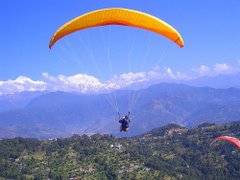 Jaikrishna Goit, head of the underground Janatantrik Tarai Mukti Morcha (JTMM-G), in conversation with Sankarshan Thakur.
Jaikrishna Goit, head of the underground Janatantrik Tarai Mukti Morcha (JTMM-G), in conversation with Sankarshan Thakur. We cross the dusty border into India on a rickshaw at a location we are committed not to disclose. We are then led to a poky hotel, a stone’s throw from no-man’s-land where the leader of the main Madheshi insurgent group is holed up. The JTMM (Goit) strikes every other day somewhere in Madhesh and is high on the security’s hit list. You expect to see a raging warlord. Jaikrishna Goit is a bespectacled sexagenarian who wields history texts more often than he wields guns to justify his armed enterprise to liberate his land. The professorial revolutionary refused to be photographed but spoke at length on why he wants to secede from Nepal.
Excerpts
Tehelka: Most Madheshi groups want autonomy and a stake in how Nepal is run. Why do you want liberation?
Jaikrishna Goit: Because I am another country. The Tarai was annexed by Nepal’s Pahadi rulers and then parts of it were ceded to them by the British through treaties. By the Indo-Nepal agreement of 1950, all earlier treaties stood abrogated. This is not merely in the treaty, but also a part of un documents. The Tarai should have become free then. Am I to blame if my forefathers were not vigilant or smart enough to claim back their land? Even India cannot argue against me. India signed the 1950 treaty with Nepal and it clearly states all previous treaties stand scrapped. It is simple, we are free, we should be free.
You think it’s so simple? Do you think a new country on these borders can become a reality? Will anyone accept that in this changed world?
Many countries are getting liberated, that is the changed world. And I am not seeking anyone’s acceptance, I want my country, whether anybody agrees or not. I know what you are talking about — whether Nepal will be ready, whether India will want it. The fact is I am neither Nepali nor Indian nor of Indian origin. History proves that, I have texts to establish that. I want people in Kathmandu also to make themselves aware of their real past. The people of the Tarai are a separate people, they should have their country. I may not be able to achieve that in my lifetime but that is not the point. The aspiration for liberation is there and the coming generations will get it. I belong to the Tarai, I know the only thing people want is freedom.
But you were long part of Nepali politics, you were first a communist, then you turned a Maoist, why this sudden thrust for liberation?
Because I am the most exploited and colonised person in Nepal, because I have no way of correcting that other than being completely free to determine my circumstances. Those who are negotiating autonomy are collaborators, they will never get that from the Pahadis, they will only get tokenism. That is not what we want.
How do you justify this daily bloodshed?
Even Gandhi said it is better to be violent than to be a coward. The enemies of my country have to be eliminated, there is no other way. Ram fought and killed Ravan. Krishna fought the Kauravas. Nepalis do not treat us as human beings. There is no other way of dealing with them.
Can you fight the Nepali state with arms?
Why not? Most of Nepal’s great struggles have been fought in the Tarai by the people of the Tarai. We know how to fight. The myth of Gorkha bravery is just a myth; whatever they know about battle, we taught them. Read history carefully and you will know. And we are not killing innocents, we target people.
Many of them are Tarai people, many of them are from other Madheshi groups. Some people say your struggle has degenerated into petty crime and reprisal.
The enemies of liberation have to be eliminated, no matter who they are. And those who call us criminals merely want to defame us. Do I look like a criminal to you? Don’t you see I have been pushed into a corner where I have no choice but to pick up the gun? Nobody calls the Maoists and the Young Communist League criminals. They are in government and continue to kill and commit all sorts of other crimes everyday.
Don’t you think the new Constituent Assembly might fulfil the aspirations of the Tarai people?
It will only renew the slavery of my people. Nepal has no right to conduct an election here and talk about a Constituent Assembly. We do not belong to them.
So there is no possibility you will talk?
No, I can. If they create the right atmosphere, I can go and tell them: pass legislation in parliament for an independent Tarai and we will live happily thereafter. That is all I have to say to those in Kathmandu. At the moment, there is no such atmosphere. The State and the Maoists are after us, we are running for our lives most of the time.
Do you have the strength to fight a sustained battle?
I am not saying I will achieve liberation tomorrow. We are in a movement, we are building cadres, opinion is turning towards us. An autonomous Tarai is a halfway house and you will not even get that. The only way is a complete break.
Is India protecting you?
I do not want to make any comment on that. All I can say is I am a freedom fighter and a guerrilla. And, legally speaking, India has to support the case that the Tarai was never a part of Nepal, it had only been annexed or gifted by imperial powers. That injustice has to be undone.
Source: Tehelka

